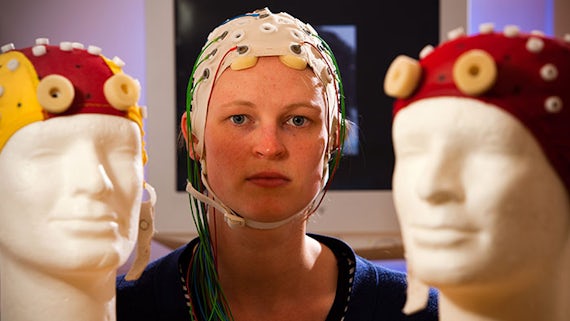Women better at reading minds than men – new study
12 February 2021

A new approach to “mind-reading” has been developed by researchers at Cardiff University and the Universities of Bath and London to assess how well we understand what others are thinking.
Mind-reading, sometimes referred to in psychology as “mentalising” or “theory of mind”, is an important ability for social interaction we use on a daily basis. For example, it helps us to pick up on subtle behavioural cues that might indicate someone is thinking something they are not saying.
We all have different mind-reading abilities, with some of us inherently better at it than others. Some people may experience mind-reading difficulties, such as autistic people, and this can lead to challenges in building and maintaining social relationships.
The researchers designed a new, easy-to-use mind-reading test, and tested it in more than 4,000 autistic and non-autistic people in the UK and US.
They found that women are much better than men at reading minds and they also found that autistic people experience more mind-reading difficulties than non-autistic people.
Their new tool is published today, along with the research findings, in the journal Psychological Assessment.
Senior author Dr Lucy Livingston, from Cardiff University’s School of Psychology, said: “The ability to understand other people’s minds is really important for successful social interaction among humans. However, so far we know very little about why some people are particularly good at – or struggle with – mind-reading."
We’ve now developed a really simple, easy-to-use tool to measure this ability. This should be useful for large-scale research to better understand why people differ in this ability and what the consequences might be for a host of life outcomes.
Answers to their simple four-item questionnaire were scored, ranging from four to 16 (with four indicating poor mind-reading abilities; 16 indicating excellent abilities). The average score for their questionnaire was between 12 and 13.
After statistically confirming the test was measuring the same thing in men and women, they found that women reported better mind-reading than men, while also confirming some of the well-reported social challenges faced by the autistic community.
Dr Punit Shah, co-senior author from the University of Bath, said: “We needed to separate mind-reading from empathy. Mind-reading refers to understanding what other people are thinking, whereas empathy is all about understanding what others are feeling.
“By focusing carefully on measuring mind-reading, without confusing it with empathy, we are confident that we have just measured mind-reading. And, when doing this, we consistently find that females reported greater mind-reading abilities than their male counterparts.”
Dr Livingston said the freely available tool had potential clinical utility to identify people who have mind-reading difficulties and provide them with appropriate extra support.
“Typically, researchers have relied on complex experimental tasks to measure this ability in autistic people. However, our new test takes into account the lived experiences of autistic people, as it relies on them self-reporting their social abilities and difficulties,” she said.
“Our findings show clearly that, on average, autistic people find mind-reading more difficult than non-autistic people. This of course does not mean that autistic people are not motivated to understand and interact with other people.
“Now, being able to measure and identify mind-reading difficulties in a straightforward way should help with the tailoring of support for autistic people, particularly those who very much want to engage socially with others but do not always know how to read them.”
This research was supported by funding from the UKRI Economic and Social Research Council.
Share this story
We provide outstanding undergraduate and postgraduate teaching informed by our leading research in psychology and neuroscience.

